Breast cancer; obesity's role in risk and treatment
by Phyllis MacGilvray, M.D.
New research by Dr. Virginia Kaklamani, Director of the UT Health Cancer Center, reveal more insights on weight gain and its relationship to breast cancer.
Obesity and weight gain have long been risk factors associated with death from breast cancer. In a recent study published in the journal Cancer, a multi-institutional team of researchers, headed by Virginia Kaklamani, M.D., from UT Health San Antonio, focused on the factors that affect weight gain in women diagnosed with breast cancer.
The researchers determined that women younger than age 60 diagnosed with breast cancer who have a genetic risk factor for obesity have a higher risk for gaining weight and therefore should begin a weight-loss program to increase their chance for survival.
The study was conducted from May 2009 to August 2014 with 393 women at the Robert H. Lurie Comprehensive Cancer Center at Northwestern University, where Dr. Kaklamani was a faculty member before joining UT Health in November 2014.
“Obesity has been identified as a risk factor in developing breast cancer, in breast cancer recurrence and with a greater chance of dying from breast cancer,” said Dr. Kaklamani, a hematologist/oncologist and leader of the breast cancer program at the UT Health Cancer Center.
“We think this is due to obesity increasing the body’s production of estrogen and inflammation, and the risk for developing metabolic syndrome,” she said. (Metabolic syndrome is a group of factors that raise the risk for such conditions as heart disease, diabetes and stroke.)
Previous studies have shown that women with breast cancer are more likely to gain weight after diagnosis than women without the disease. Several other studies had examined various factors, including the patient’s receipt of chemotherapy versus tamoxifen, age at diagnosis, tumor characteristics, menopausal status and the role of genetic factors in relation to cancer diagnosis and weight gain.
“All these various factors were analyzed using data from past studies, but there have been no studies done that examined these factors in newly diagnosed breast cancer patients where the women could be followed,” Dr. Kaklamani said.
“The objective of our study was to evaluate the role of demographic, treatment-related, metabolic, genetic and lifestyle-related factors in breast cancer-related weight gain,” she said.
Blood samples were taken to identify risk factors for obesity and insulin resistance. A statistical analysis was conducted to analyze various factors related to the patients’ demographic, clinical and treatment characteristics. The patients’ body mass index was taken at the beginning of the study and at six months, 12 months, 18 months and 24 months to measure weight gain or loss.
Results showed that after six months, 29.2 percent of women had gained 3.56 pounds; after 12 months, 37.2 percent of women had gained 3.97 pounds; after 18 months, 46.2 percent had gained 4.64 pounds; and after 24 months, 50.3 percent had gained 4.56 pounds. Weight gains were more common among patients younger than 60 years of age.
“Our take-home message is this: Several factors, including a patient’s age and their genetic makeup, are implicated in weight gain during breast cancer treatment. This is important because obesity is a risk factor for recurrence,” Dr. Kaklamani said. “Also, some treatments don’t work as well in obese patients, and obesity also raises the chances for women to develop other chronic diseases. Our recommendation is that all women who are younger than age 60 when they are diagnosed with breast cancer and who have a genetic risk factor for obesity should lose weight to prevent recurrence. I am now recommending that for my patients.”
Virginia Kaklamani, M.D., is the Director of the Breast Center at the UT Health Cancer Center. Call 210-450-1000 for an appointment.
 |  |
Meet our breast cancer team
Meet our team from the Breast Cancer Center at the UT Health Cancer Center, working every day to treat patients, as well as advance research and education in breast cancer prevention and cures.
Every day, UT Health San Antonio puts the brightest minds behind the fight against breast cancer. With a large team of scientists, researchers, doctors, nurses, certified genetic counselors and many more – all working together in one location – each patient that walks through our doors can feel confident they will receive the most comprehensive cancer care they need. We offer same-day biopsies and mammogram results and schedule follow-up appointments within a week – some of the many ways we are making cancer care, UT Healthier.
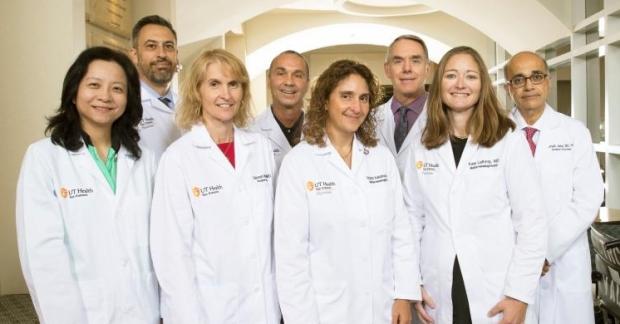
UT Health Cancer Center’s Breast Team, left to right, front row: Zheng Shi, M.D., Deborah Mueller, M.D., Virginia Kaklamani, M.D., D.Sc., Kate Lathrop, M.D., left to right, back row: Andrew Brenner, M.D., Ph.D., Richard Elledge, M.D., Richard Crownover, M.D., Ismail Jatoi, M.D. UTHealthCancerCenter org/pink | (210) 450-1000.
|
 |  |
|
Events: Breast cancer awareness month
UT Health Cancer Center is presenting two programs this month. One in collaboration with the Alamo Breast Cancer Foundation and another with the American Cancer Society. Great, free events for women concerned about breast cancer.
Presentation: Breast Cancer Update
In honor of Breast Cancer Awareness Month, the Alamo Breast Cancer Foundation, in partnership with the UT Health Cancer Center, is presenting an educational program featuring UT Health Physicians. The topics will include new treatments in early localized detection, advances in treatment of localized metastatic breast cancer, and information on prevention, screening and genetic testing. Light refreshments and coffee will be served.
Event Details: Breast Cancer Update
Saturday, Oct. 28th / 9 a.m. to 12 p.m.
UT Health Cancer Center
Mabee Conference room, fourth floor
7979 Wurzbach Road
San Antonio 78229 Please rsvp to Sandi@alamobreastcancer.org
Look Good, Feel Better
This is a program that helps women undergoing cancer treatment feel more comfortable with the changes in their appearance. The program is in collaboration with UT Health Cancer Center and The American Cancer Society. Beauty consultants are trained to work with women undergoing cancer treatment, teach ladies about nail and skin care, selecting wigs and caring for wigs, and applying make-up. Participants will receive a bag of cosmetics selected to match their skin tone.
Event Details:
Look Good, Feel Better
Monday, October 16 / 2 p.m. UT Health Cancer Center
1st Floor Grossman Building, Library
7979 Wurzbach Rd.
San Antonio 78229
Interested women should contact 1-888-227-6333 to register for the class.
Visit the UT Health Cancer Center website to learn about our Wellness Center and all our events.
 |  |
Great American Smokeout: UT Health Physicians can help!
October is the Great American Smokeout! Making a decision to quit is one of the most important things you can do for your health. The Tobacco Cessation Program at UT Health San Antonio can help you learn how to give up any kind of tobacco habit.
MyChart: Lab test results
MyChart, UT Health's free online portal for patients, allows you to review your lab test results as well as other test results. The historical view of lab results is valuable for going back through your results over the past years, especially if you had something like lower vitamin D levels and need to compare recent results.
|
 |  |
|
Meet our providers
Meet our new and verteran team members from UT Health Physicians. We have board-certified expert physicians in every branch of medicine ready to serve the needs of you and your whole family.
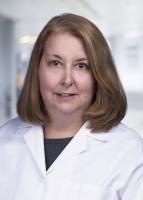
Paris Brinkley, M.D.
Primary Care -- UT Health Hill Country
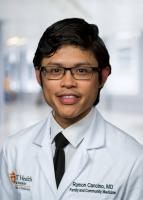
Ramon Cancino, M.D.
Primary Care -- UT Health HIll Country
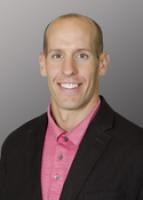
Stephen Cox, P.T.
Physical Therapy -- UT Health Hill Country and
UT Health Medical Arts & Research Center
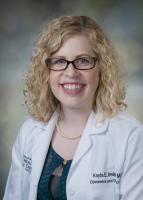
Kayla Ireland, M.D.
Maternal Fetal Medicine / Ob/GYN -- UT Health Hill Country
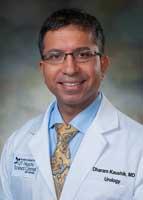
Dharam Kaushik, M.D.
Urology -- Hill Country, Medical Center, Downtown
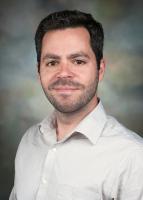
Eliot Lopez, Ph.D
Psychology -- UT Health Hill Country
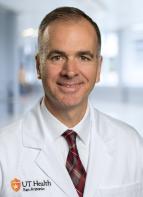
Mark Poirer, D. O,
Nephrology
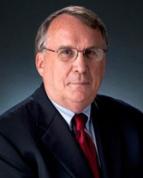
John Seaworth, M.D.
Cardiology -- Medical Center, Downtown
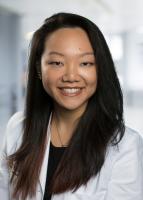
Cindy Shieh, D.O.
Family Medicine -- Medical Center
Halloween tricks to avoid cavities
Halloween means treats, but too many treats can lead to cavities. Here are the top four tricks to reduce your chances of cavities.
1. Try to avoid tooth decaying candy monsters. Sticky candies like lollipops and gummies continuously coat the teeth with sugar and can easily get stuck between your teeth. Sour candies are very acidic which breaks down tooth enamel, and tooth enamel plays a very important role in protecting your teeth from decay.
2. Scare off bacteria and eat sweets around mealtime. You produce more saliva when you eat a meal. Saliva not only helps remove food particles, but also neutralizes the acids that break down tooth enamel.
3. Say “boo” to bacteria by flossing. Candy and other food particles can easily get stuck in the spaces between your teeth. Flossing helps remove the bacteria between your teeth that your toothbrush simply cannot reach.
4. Treat problems early by regularly visiting your dentist. Regular dental cleanings mean easier treatments. Your dentist can identify any problems early and provide you all the right treats you need for a stronger smile and a stronger you!
For more information on how you can get a UT Healthier smile, visit UTDentistry.com or call 210-450-3700 today.
UT Dentistry is the dental practice of UT Health San Antonio, located at 8210 Floyd Curl Drive, just next door to UT Health Physicians' Medical Arts & Research Center (MARC).
 |  |
Health tip: Try a treadmill
Free surgical weight loss seminar
Attend one of our free seminars to learn more about our surgical and non-surgical weight loss options. There is no obligation upon attendance, and the seminars are led by our trained bariatric surgeons who will discuss each type of weight loss program and go over the risks and benefits. Bring your questions! The informational seminar lasts about 60 minutes and you are welcome to bring a friend. UT Health San Antonio Medical Arts & Research Center 8300 Floyd Curl Drive
San Antonio , TX 78229
Conference Room B – 1st Floor 6:30 – 7:30 p.m. - October 11
- November 16
- December 7
For more information, contact UT Health Surgical Weight Loss at 210-450-9200.
|
 |  |
|
UT Health Hill Country: Accepting new patients
UT Health Hill Country is the newest multispecialty outpatient practice of UT Health San Antonio. Our comprehensive range of services includes a state-of-the-art imaging and radiology center, as well as specialists in primary care, orthopaedics, sports medicine, spine care, behavioral health, physical therapy and urology.
Our new office is conveniently located between Boerne and San Antonio and has the care you've been waiting for, including: - Primary Care
- Orthopaedics
- Pain Consultants
- Behavioral Health
- Urology
- Physical Therapy Center
- Imaging Center
Primary Care is Primary Having a primary care provider is essential to your health and well-being. All of our board-certified primary care providers are trained to prevent and treat a wide variety of medical conditions for patients of all ages, from newborns to older adults. Our providers collaborate with our network of more than 700 physician specialists to make sure you have the most comprehensive and seamless care possible.
To make an appointment at UT Health Hill Country, call 210-450-6800.
High-tech, low profile: The latest in hearing aid technology
What is 1.25 inches long, has wireless streaming capabilities and enhances your ability to hear? No, I’m not describing the latest trend in wireless headphones; I’m describing a hearing aid. The hearing aid industry has made remarkable improvements to the cosmetics, functionality and efficiency of hearing aids.
Surprised? When you thought about a hearing aid, did you imagine a bulky device resembling a small beige banana? Fortunately for hearing aid users, that is no longer the case. Advances in hearing aid technology have made these devices smaller and smarter with more superior sound quality than ever before. Additionally, many hearing aids have the ability to connect users to our wireless world—a technology far beyond the traditional hearing aid experience.
In addition to streaming audio or media, Bluetooth technology has the ability to transform your smart device into a sophisticated hearing aid remote control. Some apps allow the user to adjust not only the volume, but also aspects of base, treble and the focus of soundwaves through the microphones.
Worried that it is far too easy to lose such a small device? GPS technology within the device and app provide the user with the last known GPS coordinates of the device. Lost your hearing aids in the house? Many devices have a feature that turns your smart device into a sophisticated game of “Hot and Cold” with a visual indicator that lights up the closer the user is to the lost device.
These are just a few of the amazing advancements in hearing aid technology, not to mention their sophisticated, sound-enhancing qualities. UT Health San Antonio’s ENT - Head and Neck Surgery (Otolaryngology) Practice provides diagnostic testing to determine if patients are candidates for hearing aids. Audiologists can perfectly match qualified patients with hearing aids that meet their needs and their lifestyles.
If you answer “yes” to any of the following questions, you should consider having your hearing tested:
- Do you hear that people are talking, but frequently have trouble understanding what’s being said?
- Do you struggle to hear the television or telephone conversations clearly?
- Do others accuse you of ignoring them, when in fact you didn’t actually hear them?
- Do you find yourself just nodding “yes” in group settings because you find it hard to understand the conversation?
- Are you smartphone savvy and think you would enjoy manipulating your hearing aids using an app?
- Would you like to stream your cell phone conversations wirelessly to both ears?
If you answered “yes” to any of these questions, call 210-450-9950 to make your appointment with an UT Health audiologist.
 |  |
Research update: BRCA1 discovery has implications for breast cancer research
Rong Li, Ph.D., and colleagues at UT Health San Antonio are building on 15 years of BRCA1 studies. Their latest discovery, reported June 26 in Nature Communications, is of a new, previously unrecognized function of BRCA1.
|
|
|